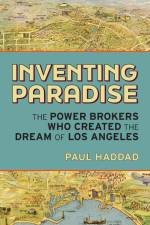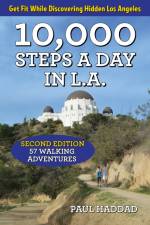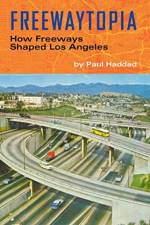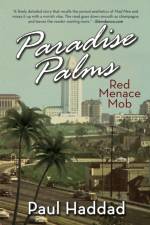- 52 Walking Adventures
av Paul Haddad
201
10,000 Steps a Day in L.A.: 52 Walking Adventures is for urban adventurers with a passion for healthy living who are also hungry to explore L.A.s hidden, unsung, and sometimes quirky side. This unique guidebook provides everything readers need to venture out and tackle the citys 500 square miles.The book is based on a concept that first took hold in Japanthat if people walked 10,000 steps each day, they would burn 20 percent of their caloric intake through that activity alone. Now an ingrained part of the American lifestyle, the 10,000 steps phenomenon is taking the country by storm; it is now a recognized daily goal by a number of major insurance companies like Kaiser Permanente and health institutes such as the World Health Organization, the U.S. Center for Disease Control, the U.S. Surgeon General, and the American Heart Foundation.In this first-ever book to explore the 10,000 steps concept in the City of Angels, these walks take readers through the terrain that makes Los Angeles the envy of many a metropolisbeaches, mountains, rivers, and reservoirs, not to mention the nations largest urban park, Griffith Parkall while immersing them in the citys history and lore, offbeat locales, and popular landmarks.10,000 Steps a Day in L.A. promises three things: 10,000 steps in each walk, a blueprint for doing it each weekend of the year (52 walks equals a years worth of weekends), and a sense of fun and discovery about L.A. that will only make the 10,000 steps goal that much easier to attain. Readers need bring only their feetpedometers optional.




